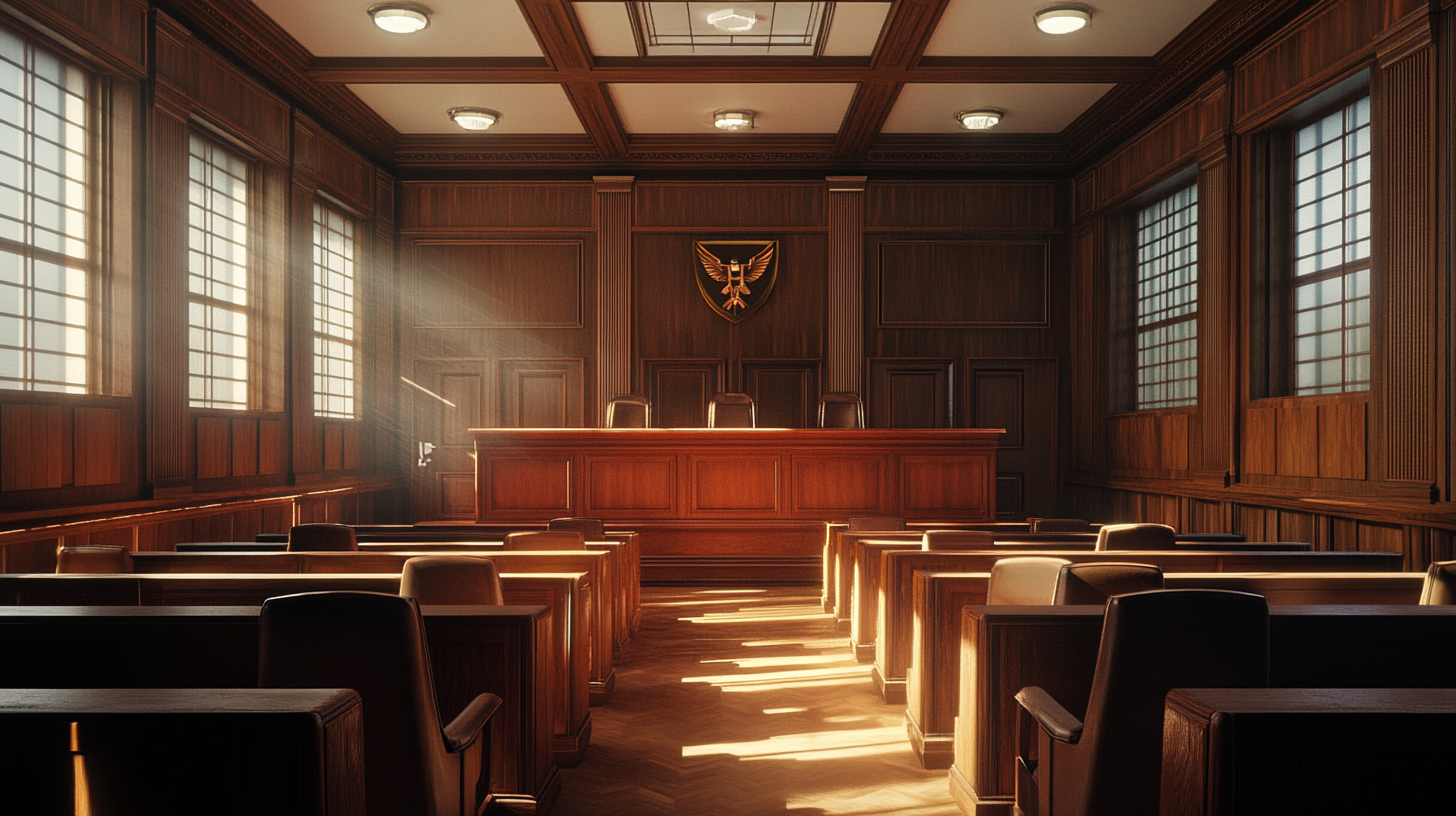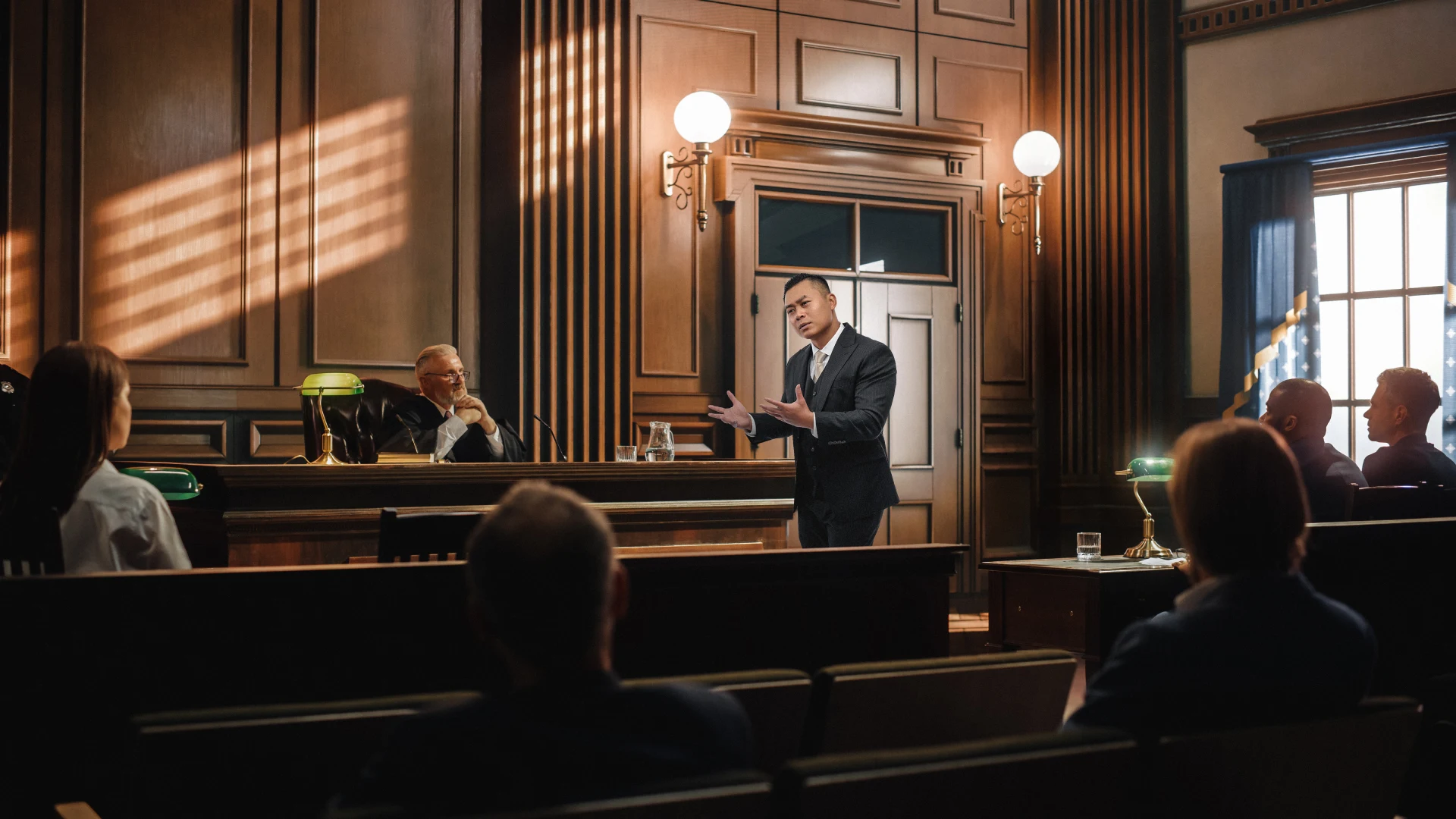The Insider’s Edge: A Former Prosecutor’s Guide to Your Defense
When you are facing criminal charges, the stakes could not be higher. You are up against a powerful, well-resourced system designed to secure convictions. The prosecutor’s office, armed with the full might of the state, has a clear objective. They have a system, a set of strategies, and a plan for every case. What if you could have someone on your side who already knows that plan? What if your defense attorney wasn’t just a lawyer, but a former prosecutor who helped write that very “playbook”?
At The Win Law Firm, we believe that an insider’s perspective can be your most powerful asset. We have an attorney on our team who once sat on the other side of the courtroom. They know the tactics, the pressure points, and the thought process of the prosecution because they lived it. This unique insight is not just a talking point; it’s the foundation of our defense strategy. This blog post will pull back the curtain on the prosecutor’s playbook and show you how a former prosecutor uses that knowledge to build a stronger defense for you.
The Prosecutor’s Mindset: What They’re Really Thinking
To effectively defend a case, you first need to understand your opponent. A prosecutor’s job is not simply to “get a conviction.” Their goal is to prove guilt beyond a reasonable doubt, and they are motivated by a variety of factors. These can include public pressure, office policies, and the desire to build a strong conviction record.
A former prosecutor understands these internal pressures. They know when a prosecutor is genuinely confident in their case and when they are bluffing. They can recognize the subtle cues that indicate a prosecutor is feeling the pressure to settle. This is a level of insight that an attorney who has only ever worked on the defense side may never fully grasp.

The Charging Decision: It’s Not Always What It Seems
The very first step in any criminal case is the charging decision. The prosecutor’s office decides what crimes to charge based on the evidence presented by law enforcement. Many people believe this is a straightforward process, but a former prosecutor knows it’s often more complex. They know that prosecutors sometimes overcharge a defendant. They might add more serious charges than the evidence warrants, simply to gain leverage. This is a classic negotiation tactic designed to make a defendant feel like they have no choice but to accept a plea deal for a lesser charge.
A former prosecutor will immediately recognize this strategy. They will scrutinize the charging documents and the initial evidence to determine if the charges are truly supported. If they are not, they will challenge them immediately. This proactive approach can lead to charges being dropped or reduced before the case even moves forward. Knowing this from the start is an incredible advantage for your defense.
Pre-Trial Motions: The Chess Match Before the Game
Before a case ever gets to a jury, there is often a critical “pre-trial” phase. This is where both sides file motions to suppress evidence, dismiss charges, or make other key legal arguments. For the defense, this is often the best opportunity to weaken the prosecution’s case. A former prosecutor knows exactly what motions will be most effective. They understand the specific legal thresholds and precedents that a prosecutor is most worried about.
For example, a former prosecutor knows which police reports are often sloppily written and can be used to challenge a search warrant. They know how to spot a “bad stop” by a police officer, which can lead to all evidence gathered being thrown out. They know the specific language to use in a motion to suppress a confession, making it harder for the prosecution to counter. This isn’t just about filing motions; it’s about filing the right motions with the right arguments. This insider knowledge can be the difference between winning and losing.
The Plea Bargain: Negotiating from a Position of Strength
The vast majority of criminal cases are resolved through a plea bargain. This is where a defendant agrees to plead guilty to a lesser charge in exchange for a lighter sentence. The prosecution often frames these offers as a great deal, but are they really? A former prosecutor understands the motivations behind every plea offer. They know when the prosecution is making a fair offer and when they are simply trying to get an easy conviction.
They can assess the strength of the evidence from the prosecution’s perspective. A prosecutor who knows their case is weak will often offer a very favorable plea deal. A former prosecutor can see this coming and can leverage that weakness to negotiate an even better outcome, or even push for a full dismissal. They also understand the deadlines and pressures that prosecutors face. For example, they know when a prosecutor is nearing a trial date and is under pressure to close cases, which can be an excellent time to negotiate. This insight is invaluable. It ensures that you are not being taken advantage of and that any plea deal you consider is truly the best possible outcome for your situation.

The Courtroom: Anticipating Every Move
If a case does go to trial, having a former prosecutor on your side is like having a spy in the enemy camp. They know the common pitfalls prosecutors fall into. They understand the strategies prosecutors use to manipulate a jury or to present evidence in a way that seems more damning than it is. They can anticipate the questions a prosecutor will ask witnesses. They can predict the line of attack the prosecutor will take during cross-examination. This allows them to prepare you and your witnesses for every possibility.
During trial, a former prosecutor is constantly thinking two steps ahead. When the prosecution calls a witness, your attorney is not just listening to the testimony; they are deconstructing the prosecutor’s strategy. They are already formulating questions for cross-examination that will expose weaknesses in the state’s case. This tactical advantage is a powerful tool for your defense.
Conclusion: The Power of Perspective
Your choice of a criminal defense attorney is one of the most important decisions you will ever make. You need more than just a good lawyer. You need an advocate who understands the system from the inside out. A former prosecutor brings a unique and powerful perspective to the defense table. They have seen the system from both sides. They know the plays in the prosecutor’s playbook because they were the ones running them.
This invaluable insight is not something every law firm can offer. At The Win Law Firm, we leverage this insider knowledge to build a robust and strategic defense for every client. We scrutinize the evidence with a prosecutor’s eye, anticipate their strategies, and negotiate from a position of strength. If you are facing criminal charges, don’t face the system alone. Get someone on your side who knows how the system truly works.
Contact The Win Law Firm today for a consultation. Let us put our insider knowledge to work for your defense.
Disclaimer: This blog post is for informational purposes only and does not constitute legal advice. Always consult a licensed attorney for guidance specific to your case.
FAQs Section
1. What is the “prosecutor’s playbook”?
The “prosecutor’s playbook” is a metaphorical term that refers to the standard strategies, tactics, and procedures that a prosecutor’s office uses to build and prosecute criminal cases. This includes everything from the initial charging decisions and evidence gathering to plea bargain negotiations and courtroom trial strategies. The “playbook” is not a physical book, but rather a set of unwritten rules and approaches that prosecutors learn and use throughout their careers. A former prosecutor has direct, first-hand knowledge of this system, which gives them a significant advantage in a criminal defense case.
2. How does a former prosecutor’s experience benefit my defense?
A former prosecutor’s experience provides a unique and powerful perspective for your defense. They have a deep understanding of how the prosecution thinks, what motivates their decisions, and the weaknesses in their case. They can anticipate the prosecutor’s strategies and prepare a counter-plan. This includes scrutinizing evidence with an expert eye, identifying potential legal motions to weaken the state’s case, and negotiating plea bargains from a position of strength. This insider knowledge allows them to build a more proactive and strategic defense, which can lead to a more favorable outcome for you.
3. Does being a former prosecutor mean my attorney will be less committed to my defense?
Absolutely not. A former prosecutor who has transitioned to criminal defense has made a conscious choice to advocate for individuals against the power of the state. Their commitment to your defense is often strengthened by their understanding of the system’s potential for overreach or error. They are dedicated to ensuring that the rights of the accused are protected and that the system is held accountable. Their past experience simply equips them with a more powerful set of tools to achieve the best possible outcome for you.
4. Can a former prosecutor get my charges dismissed?
While no attorney can guarantee a specific outcome, a former prosecutor is uniquely positioned to seek a dismissal of charges. Their expertise allows them to quickly identify procedural errors, weaknesses in the state’s evidence, or instances where a prosecutor may have overcharged the case. They can file strategic pre-trial motions to suppress key evidence or challenge the legal basis of the charges. Their deep understanding of the law and legal procedure means they know the most effective arguments to make to a judge to have charges dropped.
5. What is the difference between a plea bargain offered to my attorney and a plea bargain offered to me directly?
If a plea bargain is offered to you directly, especially without an attorney, it is almost always a deal that is highly favorable to the prosecution. The prosecution’s job is to secure a conviction, and they will present an offer as their best and final one, even if it is not. When you have a former prosecutor representing you, they can evaluate the true strength of the prosecutor’s case. They will know if the offer is a bluff, and they will negotiate a plea bargain from a position of knowledge and strength. This often results in a significantly better offer, with a lower charge or less severe sentence, than what you would have been offered on your own.
